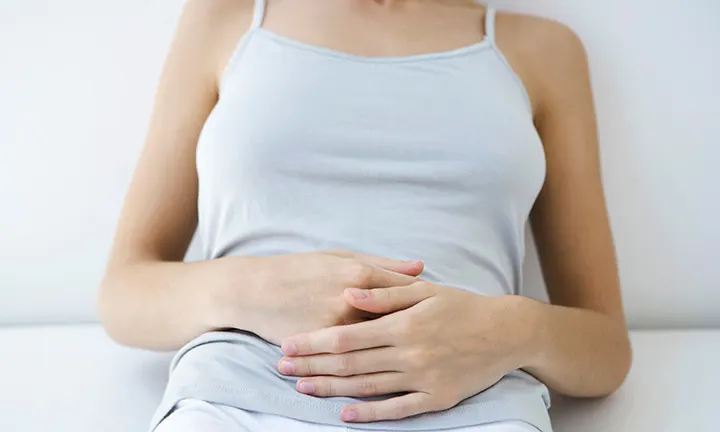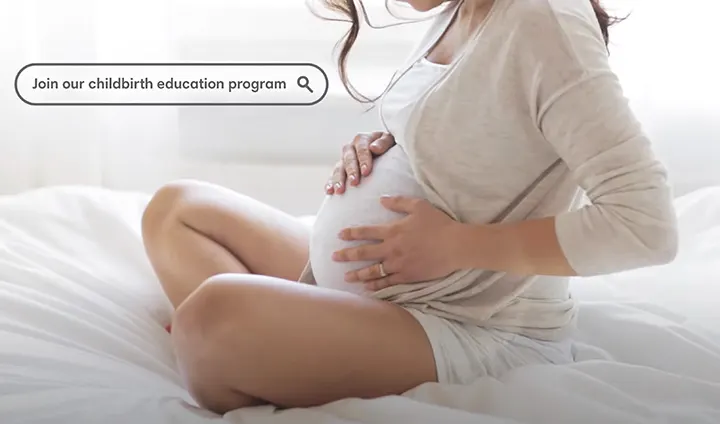When Does Morning Sickness Start? Everything You Need to Know
If you've been dealing with nausea or vomiting during pregnancy, know that you're not alone. Many people begin to experience these symptoms—often called morning sickness, within the first couple of months. Keep reading to learn about what causes morning sickness, when it typically begins and ends, and some useful tips to help ease your discomfort.
What Is Morning Sickness?
Morning sickness is the nausea or vomiting that some people experience during pregnancy. Despite the name “morning” sickness, this common pregnancy symptom can occur at any time of the day.
When Does Morning Sickness Start?
Morning sickness usually starts sometime between 4 weeks and 9 weeks of pregnancy, and may be at its worst over the following month.
Keep in mind that the time when morning sickness starts may be different for each pregnant person and can even differ between pregnancies. And some pregnant people never experience morning sickness at all.
If you’re unsure how far along you are in your pregnancy, you can find out using our Due Date Calculator by turning to your healthcare provider.
When Does Morning Sickness Peak?
If you’re wondering when morning sickness is the worst, the answer can vary from person to person. However, it’s common for nausea and vomiting to peak around weeks 8 to 10 of pregnancy.
When Does Morning Sickness End?
So, now that we’ve covered when morning sickness may start or peak, you may be wondering, “How long does morning sickness last?” According to experts, between 70 and 85 percent of pregnant people experience morning sickness in their first trimester, and most people find that their symptoms usually go away in the second trimester, sometime around 16 weeks. Every pregnancy is unique, so while the symptoms may last for up to several months for some, for a small percentage of people, symptoms may continue throughout their entire pregnancy.
Morning Sickness Symptoms
What does morning sickness feel like? Many would describe morning sickness as a nauseous feeling that may come with or without vomiting.
Morning sickness can strike at any time of day. It may occur for a short period each day, come and go throughout the day, or last all day. It’s different for every pregnant person, and what you may experience during early pregnancy is unique to you.
If you have morning sickness, you may also experience loss of appetite, heartburn, reflux, or hunger pangs. You might also notice your nausea or vomiting is triggered by certain foods or smells.
There is also a severe form of morning sickness known as hyperemesis gravidarum. Only about 2 percent of people with morning sickness experience this severe condition. Though no one knows what causes the condition, people who are carrying more than one baby may be more likely to have severe nausea and vomiting than those carrying just one baby. For this type of morning sickness, your healthcare provider may prescribe medication to treat the nausea and vomiting.
What Causes Morning Sickness?
Experts aren’t quite sure what causes the nausea and vomiting associated with morning sickness, but there may be a link with the elevated levels of the pregnancy hormones hCG (human chorionic gonadotropin) and estrogen during early pregnancy.
These hormonal changes may heighten your senses, too. In other words, you may become more sensitive to certain smells, and your sense of taste may also change; for example, everything may taste sour, bitter, or simply off. Read more about pregnancy cravings and aversions.
What Helps with Morning Sickness?
Morning sickness is not enjoyable—most pregnant people can attest to that! So, if you want to know how to avoid sickness in pregnancy, or how to stop pregnancy nausea, while you can’t prevent it altogether, there are some ways to help relieve the symptoms:
Stay hydrated. Ensuring adequate fluid intake is crucial. Sipping water, herbal teas, or ginger ale can help maintain hydration levels and prevent nausea from worsening due to dehydration
Get plenty of rest and reduce stress. Getting plenty of rest and managing stress through relaxation techniques such as yoga, meditation, or deep breathing exercises can help reduce the severity of morning sickness.
Avoid triggers. Identifying and avoiding triggers such as certain smells, flickering lights, or warm environments can help minimize nausea. Keeping rooms well-ventilated and using fans or air purifiers may also be beneficial.
Take prenatal vitamins. Taking prenatal vitamins with a snack or before bed, or switching to a different formulation like chewable or gummy vitamins, can help reduce nausea associated with these supplements.
Maintain oral hygiene. Rinsing your mouth after vomiting with a mixture of water and baking soda can help protect your teeth from stomach acid.
Try alternative therapies. Some individuals find relief from morning sickness through alternative therapies such as hypnosis, aromatherapy with essential oils, acupuncture sessions, or acupressure wristbands. If you want to try any of these alternative therapies, consult your healthcare provider first.
These strategies may be effective in managing morning sickness and improving comfort during pregnancy. Always consult with your healthcare provider before starting any new treatment.
Morning Sickness Medication
Taking vitamin B6 supplements or doxylamine (an antihistamine found in Unisom) can help alleviate nausea. These are often recommended before trying prescription medications.
Your healthcare provider may also prescribe medication to prevent nausea based on your situation.
Foods to Eat During Morning Sickness
Eating smaller, more frequent meals, snacking on salty crackers, and sipping ginger tea or ale, or sucking on ginger candy, may help relieve nausea. It may also help to eat a few dry crackers or toast first thing in the morning to help settle your stomach.
If you’re really having a hard time with morning sickness, your healthcare provider may recommend switching to bland foods, such as the BRATT diet (bananas, rice, applesauce, toast, and tea), as these are easy to digest.
It’s best to avoid greasy, spicy, and fatty foods during this time as these could make your symptoms worse.
Some researchers have found that foods high in protein may relieve nausea better than foods high in carbohydrates. Test whether adding protein to every meal helps.
When to Call Your Healthcare Provider
Morning sickness is a normal occurrence during pregnancy; however, if you experience any of the following, call your healthcare provider:
You’re unable to urinate, or urinate a very small amount, or urinate fewer than three times per day
Your urine is dark in colour or has a strong odour
You can’t keep any foods or liquids down for 24 hours or more
You’ve stopped gaining weight or have lost almost 3 kilos or more within one to two weeks
Your skin, mouth, and lips are very dry
You get dizzy when you stand up
You get tired and confused easily
Your heart is racing or pounding.
The Bottom Line
Morning sickness can start early in your pregnancy, often between 4 and 9 weeks, and typically doesn’t last past your first trimester. However, your particular experience may be different, as each person's pregnancy is unique.
Morning sickness is a very common pregnancy symptom, and it can happen any time of the day, not just in the morning. The good news is that eating things like savoury crackers and drinking ginger tea throughout the day could help.
If you notice that you’re dehydrated or losing weight, or if your symptoms are particularly severe, it’s best to call your healthcare provider so that you can get treatment.
Luckily, most pregnant people find that morning sickness goes away in the second trimester. In the meantime, if you’re having a hard time with morning sickness, try to see it as a good reminder that you’re creating a new life, and speak to your healthcare provider for personalized guidance and advice.
How We Wrote This Article The information in this article is based on the expert advice found in trusted medical and government sources, such as the American Academy of Pediatrics and the American College of Obstetricians and Gynecologists. You can find a full list of sources used for this article below. The content on this page should not replace professional medical advice. Always consult medical professionals for full diagnosis and treatment.
Join Pampers Club and get:






